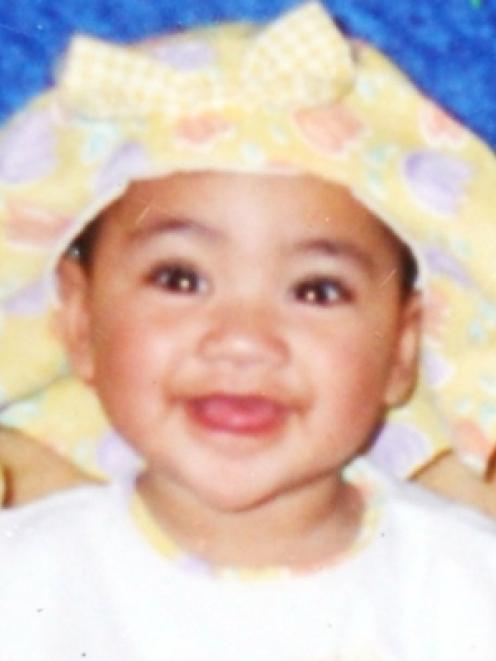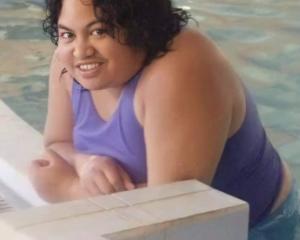
Three-year-old Nia died of brain injury in 2007 after being admitted to hospital following weeks of extensive physical abuse from various family members.
The abuse, which escalated in the week preceding her death, included being placed in a clothes dryer spinner, whirled around on an outdoor rotary clothes line, and having wrestling moves performed on her.
Nia's mother, Lisa Michelle Kuka, was found guilty of manslaughter in 2008, and her partner, Wiremu Curtis, and his brother, Michael, were found guilty of murder.
Nia's cousin Michael Pearson and Michael Curtis's partner Oriwa Kemp were found not guilty on manslaughter charges but were convicted of child cruelty.
The High Court at Auckland noted the abuse was regarded by the perpetrators as being for their amusement and incidents, such as the clothes line incident, were started as a game.
Coroner Wallace Bain's report into her death, released today, said he found the facts of the case "chilling".
"My earnest wish is that no one ever has to experience that again."
He noted New Zealand's huge child abuse problem and the price it was costing the country.
"It is sickening that it takes a case like Nia Glassie and all of the things that happened to her to act as a final wake-up call.
"In my view it is the biggest and most shameful problem facing our nation. Child abuse is an epidemic."
The country needed to devote every resource it could to preventing child abuse, he said.
Dr Bain's findings included an extensive list of recommendations which he sent to Social Development Minister Paula Bennett and Justice Minister Simon Power, with the request they were implemented.
He recommended the Government took urgent steps to ensure witnesses reported child abuse immediately and said there should be significant penalties for failing to do so.
Dr Bain also recommended a toll-free number with anonymity provided for reporting abuse.
He called for all children from birth to be compulsorily registered with government agencies and health providers, and that they be monitored through to, and including, the age of five.
Ms Bennett said Nia's horrific death had highlighted New Zealand's shocking child abuse record and had been one of the catalysts for a broad national debate on the issue.
The Government had already introduced a number of measures raised in the coroner's report, including a multi-disciplinary approach to ensuring abused children were safe when they left hospital, dedicated social workers in hospitals in every district health board, a toll-free number for reporting abuse and neglect, and greater information sharing between police, social workers and hospitals.
Many of the coroner's recommendations had also been covered in a discussion paper released last month that proposed a range of measures to address child abuse, including mandatory monitoring of vulnerable children and early intervention.
The discussion paper was the best vehicle for change and it was vital New Zealanders had a say, Ms Bennett said.
"As a country we have to decide what we are prepared to give up to stop other children experiencing the abuse baby Nia did.
"Nia Glassie will forever be remembered for the horrible way she died but it is my hope that the lessons from this tragedy will help make New Zealand a safer place for children."
A spokesman for Mr Power said the Government was hoping for progress before the election on a bill that proposes a number of measures to protect children from assault and neglect.
The Crimes Amendment Bill (No 2) would introduce a new offence for failing to protect a child known to be at risk, with a penalty of up to 10 years' imprisonment.
Adults could be found liable if they lived in the same house as the victim, were closely connected with the household, or were a staff member at an institution where the victim lived.
The bill would also increase the maximum penalty for cruelty to a child from five years to 10 years' imprisonment, and extend the current legal duty for parents to provide the necessaries of life to include taking reasonable steps to protect a child or vulnerable adult from injury.











